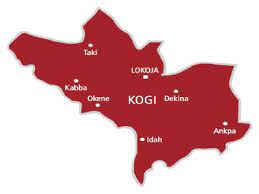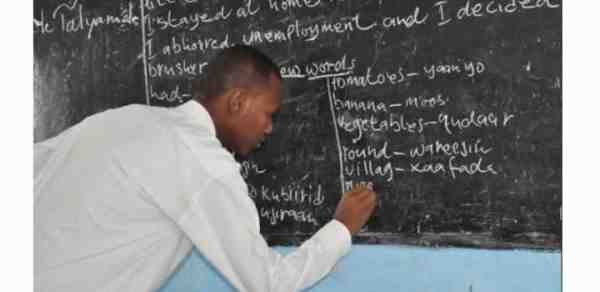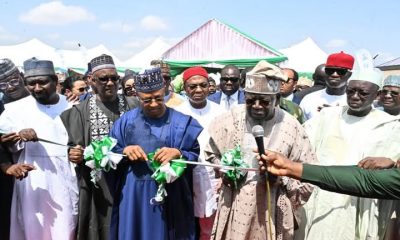Education
ASUU Strike: For Quick Resolution Refer Dispute to Chartered Institute of Arbitrators
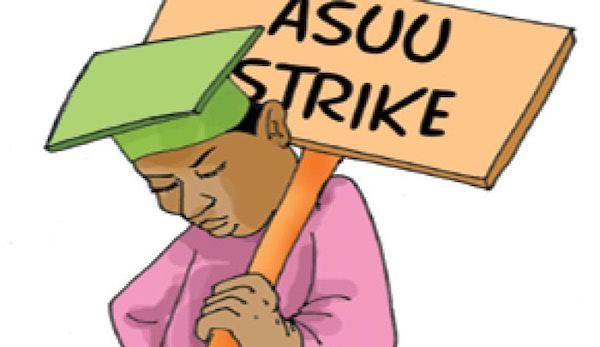
By Aare Afe Babalola
Since the Academic Staff Union of Universities, ASUU, commenced its strike on February 14, 2022, there had been no headway in the resolution of its dispute with the Federal Government.
All reconciliation meetings held between the Federal Government and members of the Union had met brick walls.
With the end of its earlier warning strike ending on May 8, ASUU announced another “roll-over” 12-week strike action commencing on May 9, 2022.
The Union’s communique reads: “After extensive deliberations, noting Federal Government’s failure to live up to its responsibilities and speedily address the issues raised in the 2020 FG-ASUU Memorandum of Action, within the additional eight-week roll-over strike period declared on March 14, 2022, NEC resolved that the strike be rolled-over for 12 Weeks to give government more time to satisfactorily resolve all the outstanding issues.
Reactions: The National Association of Nigerian Students threatened to embark on a nationwide protest, to block all airport roads, disrupt political party primaries, and block the National Assembly until their voices are heard.
Several stakeholders, including the Aare Ona Kakanfo of Yorubaland, Iba Gani Adams, lent their voices in decrying the extension of the strike action and further called on the stakeholders to resolve it, citing the effect of any further strike on the students.
The Minister of Labour and Employment, reacting to the announcement of a further strike, noted that the action is being carried out in breach of the labour laws. In context, he reportedly stated as follows: “Ministry of Labour and Employment is not the direct employer of the university teachers.
The process is that whenever ASUU has a problem with the Federal Ministry of Education, which is their direct employer, the ministry will have to try and resolve it using its internal dispute resolution mechanisms.
So when there is a breakdown in negotiations, and I apprehend the dispute on my table, and the workers refuse to go back to their work while discussions are ongoing, it is a breach of the labour law. We had apprehended the ASUU strike, we did that on February 22, and we continued the conciliation on March 1.”
Why was ASUU established?
The Academic Staff Union of Universities, ASUU, was founded in 1978 primarily to demand the rights of academic staff in the country’s Federal and state universities. In carrying out this mandate, the Union has never shied away from embarking on warning and indefinite strike actions, as well as acting as a watchdog against corruption by its members who hold key positions in its member institutions.
Under the presidency of Dr. Oladipo Fashina, the Union petitioned the Independent Corrupt Practices Commission in July 2002 to investigate the University of Ilorin’s management for financial mismanagement and corruption.
In May 2008, the Union began a series of warning strikes to press a number of demands, including an improved salary scheme and the return of the pension system. In June 2009, the Union issued an indefinite strike order to its members at federal and state colleges across the country due to differences with the Federal Government over an agreement struck around two and a half years earlier.
The Union went on strike again on July 1, 2013, for five months and 15 days. The Union sought proper financing and the revitalisation of public universities, as well as the payment of their earned allowance, which was N92 billion in arrears. One thing is certain: the Union has always been outspoken in its opposition to what it sees as unfairness to its members, and it has been in the forefront of the fight for the revitalisation of public tertiary education.
It should be remembered that the proliferation of institutions in Nigeria drew the attention of ASUU leadership, who spoke out against what it dubbed “constituency initiatives”. According to reports, National President, Professor Emmanuel Osodeke, stated that: “Our position on that had been that the Federal Government is toying with the future of the society.
They are turning universities into constituency projects, where every village must have a higher institution; the purpose is not to have good universities and a good environment for academic excellence. Every politician wants to have a university in his village.
“This is not how a system is run. They are establishing a university of Medical Sciences and other specialised institutions, why not go and fund those old universities so that you can upgrade the Faculty of Medical Sciences to professional standards, so that Nigerian politicians, including the President, who usually go outside the country for medical attention, will have their medical issues solved here.
“But we will not do that; rather, the Federal and state governments are busy establishing mushroom universities. It is very unfortunate. But as a union, we are also thinking of what we can do in the future to compel them to stop this.
One of the things we did in the earlier agreement was that we agreed that the National Universities Commission, NUC, law should be reviewed to make it almost impossible for any governor or Federal Government to start a university without adequate preparation for funding for over 10 years.
But till now, that resolution has not been implemented. What we are saying is that the law should be reviewed to give NUC power to ensure that before you can start a university, you have to show good evidence that you can fund the system.”
To pursue its demands, the Union has always used warning and/or indefinite strike measures. Naturally, the Union’s strike activities have always elicited differing viewpoints and reactions from those directly or indirectly impacted. Government views the Union as too critical, with the covert goal of presenting the government as reluctant to give the country’s education system the financial attention it needs.
Parents see the Union as a serious hindrance to their children’s or wards’ academic advancement, and perhaps as a stumbling block in reaping their benefits of investing on their children. Regardless of how the Union’s strike actions are viewed, one thing is certain: at the end of the day, everyone loses. Professor Christopher Imumolen of Togo’s Global Wealth University once remarked that the strike actions are an “avoidable tragedy resulting from systemic failure and an injury consciously inflicted on the future of youths”.
The way forward: With the seemingly endless strike action embarked upon by ASUU, the need to resolve all its outstanding disputes with the Federal Government has become more imperative than ever. While litigation may be a far stretch, I highly recommend that the parties resolve their dispute through alternative dispute resolution mechanisms, particularly arbitration.
Arbitration is not only binding and enforceable between the parties, but also more flexible as it allows parties more level of control in the process. It is generally less expensive considering the relatively short length of time it takes from commencement to delivery of an Award. Furthermore, arbitral hearings are held in private settings and are attended only by those designated by the parties and their counsel, in contrast to trial proceedings held at the courthouse, which are open to the public.
It is highly more likely that the current fiasco between the Federal Government and ASUU will be more quickly resolved to finality if the dispute is referred to Arbitration by both parties, preferably to the Chartered Institute of Arbitrator.
For the sake of the students whose hope for a timeous conclusion of their education hangs in an unascertainable balance, I plead that the parties should quickly refer their dispute to arbitration where the parties will be bound by the findings and award of the arbitrators.
Afe Babalola (SAN) is a legal luminary.
Education
Don’t Wait for White-Collar Jobs, Be self-Reliant – Board Chairman Urges Youths
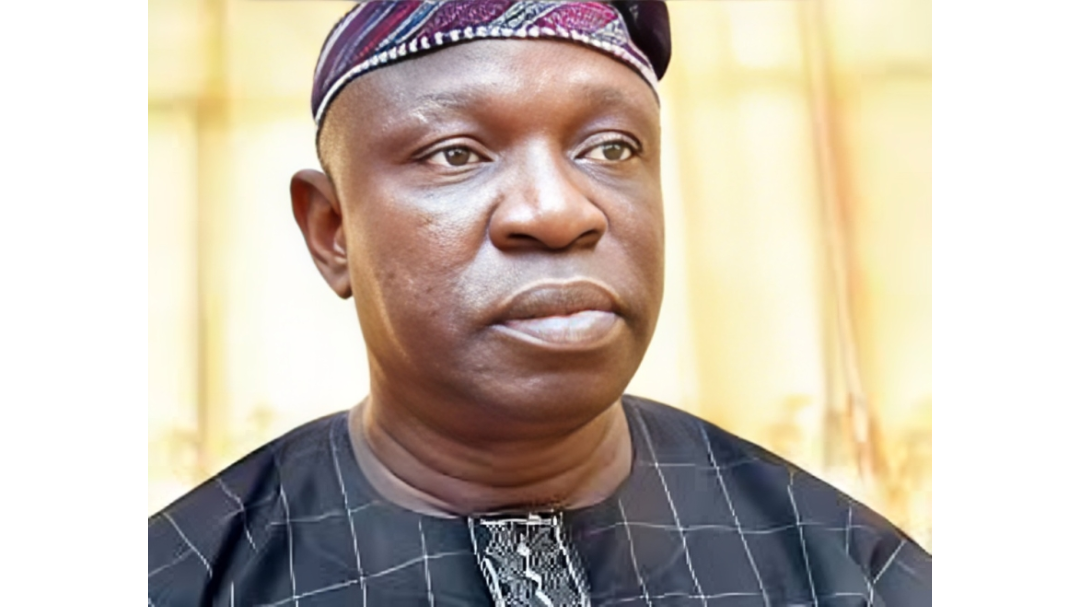
Mr Kayode Babade, Chairman, Ekiti State Board for Technical and Vocational Education, says youths should embrace technical and vocational education for innovation, self-reliance and economic empowerment.
Babade, who gave the advice on Thursday in Ado-Ekiti, said “embracing technical and vocational education was better than waiting for unavailable white-collar jobs”.
According to him, youths should utilise the gains of technical and vocational studies set-up, which is aimed at acquiring marketable skills to become employers of labour.
“The present administration in the state is undergoing various infrastructural and curriculum reforms across all the state-owned technical and vocational institutions for relevance and employability of Ekiti people.
“Vocational education and skills acquisition have been very major issues all over the world and today in Nigeria, the federal and state governments have keyed into this particular programme.
“It has three advantages: one, it makes youths self-employed; two, it puts food on their table; and three, he could be an employer of labour himself, having set up his own enterprise.
“It is a very wonderful thing for youths to have skills to enable them fend for themselves because everybody can’t work for government,” he said.
The board chairman explained that over 40 per cent of the Nigerian populace were youths, hence, so many of them would not be employed by the government.
According to Babade, the population of Nigeria is going to about 250 million, so how many people will have government work?, rather, let people go and create jobs.
“First of all, acquire a skill and then set up your own job. You’ll be independent, fend for yourself, own flexible time to work and earn a living.
“So, our major focus in the Board for Technical and Vocational Education is to train Ekiti youths, give them marketable skills that can make them self-reliant for their family and others.
“Any of the technical colleges in Ikole, Otun and Igbara-Odo can compete with any technical colleges in Nigeria.
“The Government Technical College in Ado-Ekiti is one of the best in the West African sub-region in terms of infrastructure and equipment. Government is doing everything for that place and others to maintain the standards.
“That is manpower development, youth employment, and there is youth restiveness all over the place, remember that an idle man is the devil’s workshop,” he said. (NAN)
Education
Osun NUT: Senator Oyewumi Lauds Gov Adeleke’s Commitment to Teachers Welfare, Educational Advancements

From Ayinde Akintade, Osogbo
The Senate Deputy Minority Leader, Senator Lere Oyewumi, representing Osun West Senatorial District, has commended Governor Ademola Adeleke’s unwavering commitment to the welfare of teachers and the overall improvement of public school education in Osun State.
Delivering his address on Monday at the State Wing Executive Meeting of the Nigeria Union of Teachers (NUT) in Ikire, Irewole Local Government area of Osun State, Senator Oyewumi specifically applauded Governor Ademola Adeleke’s proactive stance in prioritizing the well-being of the teaching workforce.
He stressed that this has focused on teachers welfare which has been a pivotal factor in the noticeable enhancement of performance and standards within the state’s public education system.
The lawmaker emphasized that the transformative work of teachers extends beyond the classroom, playing a crucial role in fostering community development and ultimately contributing significantly to national progress.
“Teachers are the unsung heroes of our society. Your tireless work in nurturing young minds is fundamental to building a knowledgeable, skilled, and responsible citizenry, which is essential for the sustainable development of our communities and the nation at large,” he remarked.
Senator Oyewumi’s presence at the NUT meeting underscores his consistent advocacy for quality education and his belief in the pivotal role of teachers in societal advancement.
As a representative of Osun West, Senator Oyewumi has been instrumental in facilitating various educational infrastructure projects within his constituency, including the construction and rehabilitation of classrooms, ICT centers, libraries, and laboratories, further demonstrating his commitment to enhancing the learning environment for students across Osun State.
Senator Oyewumi assured the teachers in the entire Osun West Senatorial District of initiating comprehensive training programs for teachers and empowering them with essential technological tools, particularly computers.
He underscored the importance of equipping educators with modern skills and resources to meet the evolving demands of the 21st-century educational landscape.
Earlier in his welcome address, the Chairman of the Nigeria Union of Teachers, NUT, Osun State Wing, Comrade Babalola Isaac Babatunde appreciated Senator Oyewumi’s unalloyed support to him and entire union adding that his unflinching support and cooperation to the development of entire NUT in the state cannot be over emphasised.
The Osun NUT Chairman who described Senator Oyewumi as an erudite scholar, one of the PDP foremost, active and dedicated leader not only in Osun State but in Nigeria as a whole called on the people of Osun West Senatorial District to continue to demonstrate their complete support to Senator Oyewumi for them to continue to enjoy dividends of democracy.
Comrade Babatunde also described Governor Ademola Adeleke as a teachers friendly Governor who always pursue the welfare and betterment of entire teachers in Osun.
The meeting concluded with a renewed sense of optimism and a shared commitment to the sustained growth and excellence of public education in Osun State.
Notables at the well attended meeting included Osun Commissioner II TESCOM, Hon. Sikiru Oyelakin; Irewole LGEA Secretary, Hon. Nureni Owoade; Isokan LGA Education Secretary, Hon. Badiru Otolorin; Hon. Lukman Oyeniran; Aare Moshood Jolaiya; Hon. Badiru Moruf; Hon. Femi Oladiran; among others.
Education
How female Medicine Degree Holder Abandoned Certificate for Carpentry- Bugaje

The Executive Secretary, National Board for Technical Education (NBTE), Prof. Idris Bugaje has expressed the need to promote inclusivity, especially for women and persons with disabilities in technical education.
Bugaje stated this in Abuja while assessing the impact of President Bola Tinubu’s administration after two years in office.
He appealed for greater gender inclusivity in vocational and technical education, stressing that deliberate policies such as scholarships and incentives could help bridge the gender gap.
In support of his position, Bugaje shared an inspiring story of a female medical doctor who abandoned her medical career to pursue carpentry.
“There is a story I want to share with you, about a girl who was interested in becoming a carpenter.
“The father was a carpenter and they were four children in the family, three boys and herself.
“Whenever she joined the boys to the workshop, the father would send her away, saying, `you are a girl, go back to the house, you are not supposed to be a carpenter’’.
“Without giving considerations to the passion of the young girl, the father sent her to a medical school.
“She graduated with the MBBS, went and did the one-year internship after graduation, and chose a role as a medical doctor.
“After that, she came back to the father, returned the MBBS certificate to him, and thanked him.
“Afterward, she told the father that her passion is in carpentry, not to practice as medical doctor,” Bugaje narrated
He added that after spending seven years on medical training, the father had no option but to send her to Turkey to learn how to make furniture.
Addressing cultural and societal barriers often faced by young women in technical fields, Bugaje appealed to parents to support their daughters’ interests in trades like plumbing, electrical installation, and carpentry.
He also called on policymakers to prioritise passion and skill development among youth, especially girls, noting that such encouragement could lead to greater innovation and self-reliance.
“If they want to become carpenters, ICT experts, or POP artists, allow them.
“In skills’ training, passion is very important. That’s what motivates children and helps them innovate.
“We need to harness these innovations if the country is to move forward and rise beyond being a third-world nation,” he said.
He emphasized the need to have deliberate policies to encourage women to come into TVET through scholarships and other incentives. (NAN)









